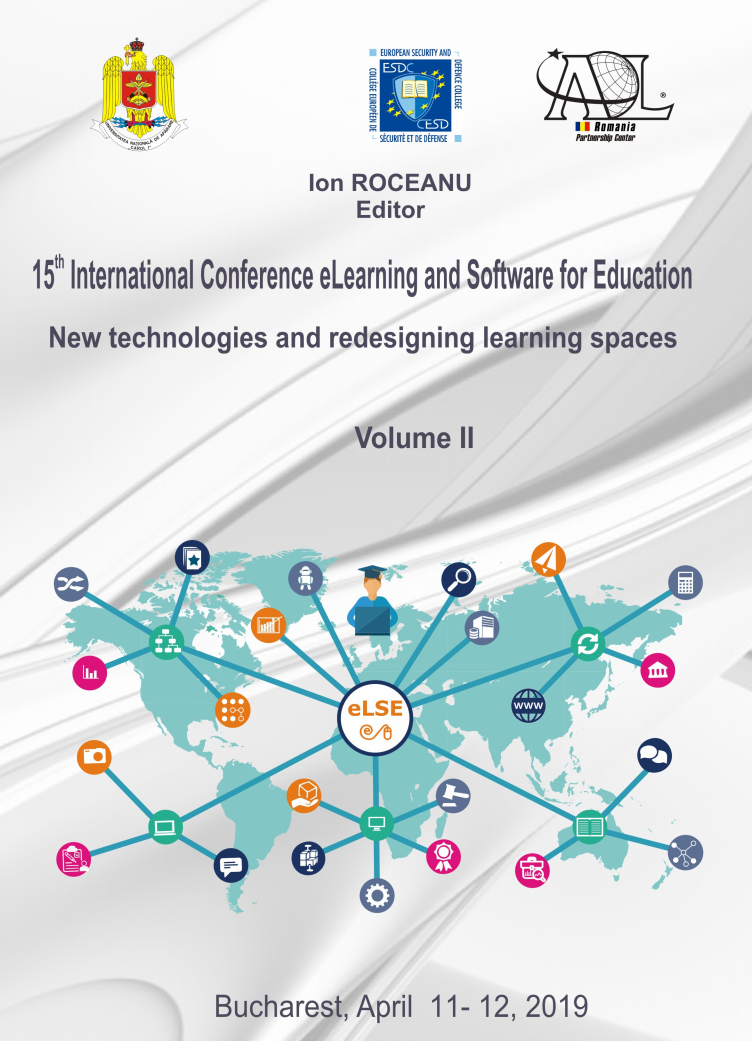Considering Student Voice in Course Co-Design Process
Considering Student Voice in Course Co-Design Process
Author(s): Ionela Maniu, Cristina RAULEASubject(s): Social Sciences, Education, Higher Education
Published by: Carol I National Defence University Publishing House
Keywords: student voice; adaptive syllabus; HEI; stakeholders;
Summary/Abstract: Curriculum should be more student choice about what they study – we agree with this statement of John White. Our approach provides a way of considering student opinion in a course which can be easily adapted to many courses aiming to shift from a “fixed” syllabus (teacher empowered) to an adaptive one. In order to establish the student’s opinion on the course it can be useful to consider steps like: focus group meetings, course (specific) questionnaires, discussions/debates considering questioner results, deciding and implementing useful findings. We present our proposed architecture of this steps based on findings results from a real based quantitative analysis (responded by 62 first year students) and discussed their implications in future management actions of the course (co)design process. Advantages and disadvantages of this approaches, problems that can be encountered, course effectiveness methods, student progress are topics that are also discussed. Industry and socio-economical point of view, considering students as joint authors of research results are other methods recommended as improvements of the proposed architecture. We want to emphasize that these approaches (which include student voice) are helpful for teachers and students being supportive for course design and update conjointly with student engagement in learning and other educational aspects (feedback, marks, active involvement, motivation, autonomy, attendance/drop-out, skills, competences, applied research projects, informal learning, long-life learning, student satisfaction, teacher-student relationship and many others). Taking into consideration of student voice along with industry and socio-economical environment voice can therefore facilitate and support for qualitatively superior teaching and learning process as well as human development.
Journal: Conference proceedings of »eLearning and Software for Education« (eLSE)
- Issue Year: 15/2019
- Issue No: 02
- Page Range: 245-250
- Page Count: 6
- Language: English

